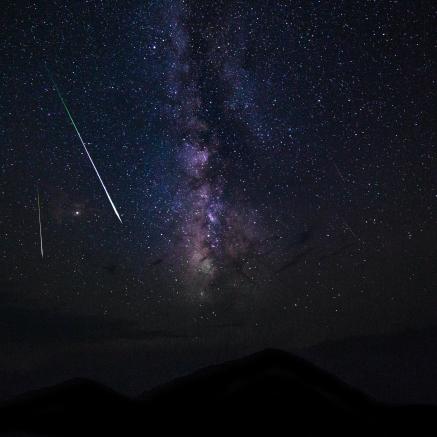Meteors are the shooting stars that occur as a result of the space dust and ice that enters the earth’s atmosphere. They are space particles known as meteoroids that will burn up with a flash of light when they enter the Earth’s atmosphere. Most of these meteors are as small as a grain of sand, which explains why we don’t find many of them on our planet. However, there are a few meteors that can handle our atmosphere and give off different colors as they streak across the sky. If an actual part of the meteor lands on our planet, then it would be called a meteorite.
While the history and origin of National Meteor Watch Day are unclear, it’s a holiday that can be easily observed because you don’t need any special equipment. Just invite a couple of your friends, grab a blanket and some snacks, pick a spot under the stars, and get ready for a night of stargazing. Since debris is constantly hitting the Earth’s atmosphere from space, you have a pretty good chance of seeing some shooting stars. After you finish watching the night skies, be sure to use the hashtag #NationalMeteorWatchDay and let everyone see a picture of what you’ve discovered.
- Meteors can be seen with naked eyes when it’s dark.
- The International Space Station has shields up to an inch wide that serve as protection from meteors.
- The tradition of wishing upon shooting stars can be traced back to 127 AD. Ptolemy, a Greek astronomer, believed that Greek gods would look down on us mere mortals and be more receptive to any prayers or wishes, due to stars, or “shooting stars” slipping through the cracks.
- Approximately 30 meteor showers occur each year that are visible from Earth.
Intrigued by meteors? Dedicate the day to finding out more about them by heading to the library and exploring some of our books on the subject. Oh, and don’t forget to plan for the next big meteor sighting, which will be in August when the Perseid Meteor shower will be visible. Happy stargazing!








